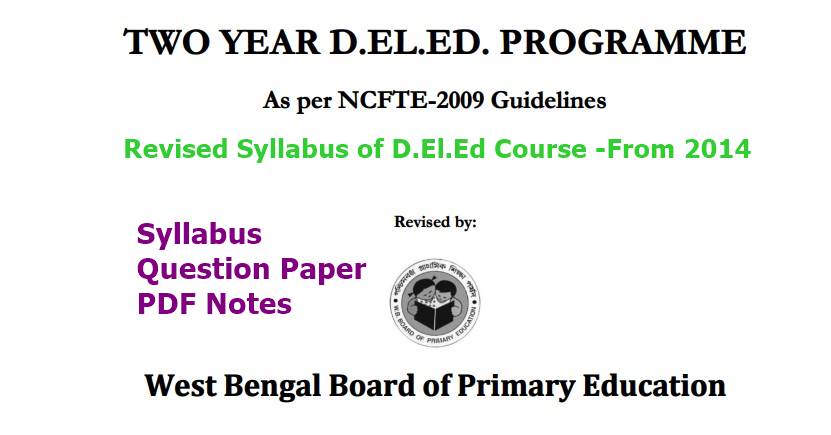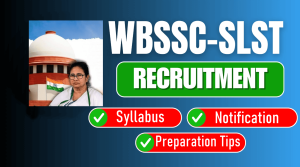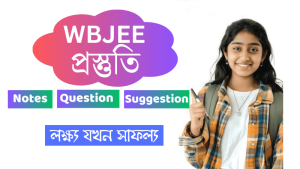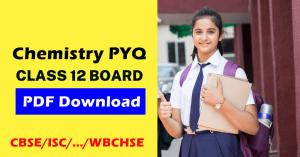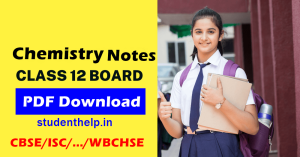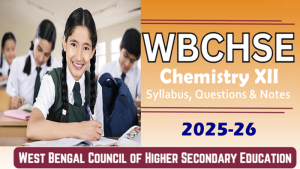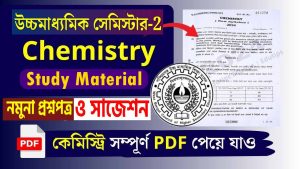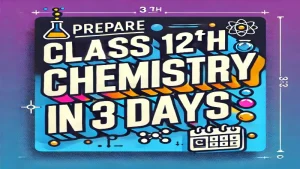Here You can find D.El.Ed Part-2 Revised syllabus of WBBPE 2025 PDF Downlod Now. The Diploma in Elementary Education in West Bengal (D.EL.Ed.) is a programme to enhance the teaching skills and competency of inexperienced primary school teachers in West Bengal.
Course Structure: Part-2 (Second Year)
Total Marks : 700 (External: 310 ; Internal: 390
Total Hours : Theory-270 hrs; Practical-330 hrs
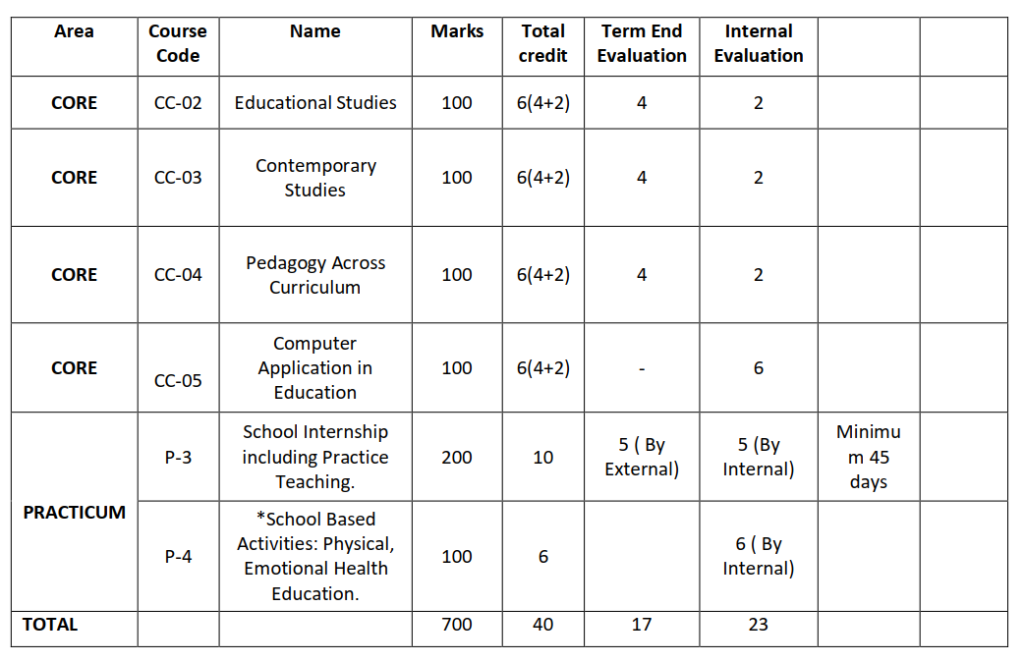
CC-02: EDUCATIONAL STUDIES
Maximum Marks=100
Internal=30
External=70
Pass Marks=40% of Full Marks in each of the External & Internal Evaluation
Student Contact = 90 hours
Objectives:
- to understand and explore the meaning, aims, purposes of education
- to develop understanding of philosophical, sociological and historical dimensions of education
- to identify and question one’s own long-established presumptions on knowledge, learner, teacher, and education, and develop a more informed, meaningful understanding of them
- to expose students to divergent educational thoughts, perspectives and practices, which will help them in creating secure, egalitarian and pedagogically sound learning situations.
Unit-I: Philosophical understanding of Education (Class-7 hours)
- Understanding the basic assumptions about Human nature, Society, Learning and aims of Education
- Relationship between Schooling and Education and exploring various educative process in Human Societies.
Unit-2: Factors of Education (Class-8 hours)
- Factors of Education-teacher, Learner, Curriculum, School
- Child centric education and its importance
- Learners in context: situating learner in the Socio-political and cultural context
Unit-3: Learning, Learner and Teaching (Class-7 hours)
- Learning-Concept and nature
- Learning- Knowledge and skills
- Different ways of learning
- Meaning of teaching and its relationship with learning and learner
Unit-4: Knowledge and Curriculum (Class-8 hours)
- Child’s construction of knowledge: attaining knowledge through activity and experience
- Definition of Curriculum and types of Curriculum.
- Factors of curriculum
- Purposes of Education, Needs and abilities of Education
Unit-5: Great Educators: (Class-11 hours)
- Indian Thinkers- Gandhi, Aurobindo, Tagore, Vidyasagar, Vivekananda
- Western Thinkers- Rousseau, Dewey, Froebel, Montessori, Piaget
Unit-6: Education Politics and Society Class-10 hours
- Political nature of Education
- Role of Education in reproducing dominance and challenging marginalization with reference to class, caste, Gender and Religion
- Teacher and Society: A critical appraisal of teachers’ status
Unit-7: Structure and process of Indian Education system Class-10 hours
- Types of schools within different Administration Bodies
- Roles and responsibilities of Educational Functionaries
- Relationships between support organization and the School
- What is School culture, organization, Leadership and Management? What is the role of School
- Activities such as Assemblies, Annual Days etc. in the creation of School culture
Unit-8 : School Effectiveness and School Standards Class-10 hours
- What is School effectiveness and how it is measured?
- Understanding and developing standards in Education
- Classroom management and the Teacher
- Lesson plans, Preparation for transaction and inclusive education
- Communication in the classroom and multiple learning levels in the classroom
Unit-9 : School Leadership and Management Class-9 hours
- Administrative Leadership
- Team Leadership
- Pedagogical Leadership
- Leadership for change
- Change Management
Unit- 10 : Change facilitation in Education: Class-10 hours
- Sarva Shiksha Abhiyan (SSA) experiences
- Equity in Education
- Incentives and schemes for Girl Children
- Issues in Educational and School reform
- Preparing for and facilitating change in Education
Mode of Curriculum Transaction
- Classroom discussions for developing conceptual understanding.
- Close reading of text material/research papers
- Individual and group presentations of issues and concerns raised in assignments and
- Theoretical and practical activities/exercises/investigations; analysis interpretation of
- collated observations, systematic data
Course Evaluation:
- Evaluation is process- based. A procedure for conducting evaluation in both the internal and external is as follows:-
Internal marks-30
Distribution of the Marks
Assignment-10
Internal Examination/Paper Presentation/Group wise or Individual-10 Marks
Attendance – 5 Marks
Overall Participation = 5 Marks
External Evaluation : External hour-3 hours
External Marks =70
QUESTION-PATTERN FOR WRITTEN (Theoretical) EXAMINATIONS
- All theoretical papers for written examinations shall be of 70 marks each
- Of these 70 marks 20 shall be kept for Multiple Choice Type Questions with four options. In case of Content & Method papers 20 marks shall be divided into two equal halves of 10 marks,
- i.e 10 for contents and 10 for method portion
- There will be 10 Very Short Answer Type Questions of 2 marks each. Such answers should be written within 25 words.
- There will also be one Essay Type question to be answered within 500 words. For this answer 16 marks will be awarded. Such questions should have a reflective/creative part. Such questions should be from the methodology portion in method papers.
- Apart from these there will be two Short Answer Type Questions of 7 marks each, to be answered within 250 words.
- In all sections, excepting the MCQ-section, there should be one or two questions in excess of the number which a trainee has to write compulsorily.

(CC-03):Contemporary Studies
Maximum Marks=100
Internal=30
External=70
Pass Marks=40% of Full Marks in each of the External & Internal Evaluation
Student Contact = 90 hours
OBJECTIVES:
- To make the student-teachers aware of the interdisciplinary concepts, ideas and concerns of education
- To help them gain an understanding of structure of Indian Nation States
- To help them understand Historical perspective and development of Indian education
- To throw light on RTE Act-2009 and provisions therein for ensuring quality elementary education for all
- To expose the student-teachers to the Indian Constitution with reference to elementary education
- To enlighten the student-teachers on ICT in Education, Inclusive Education, Education for Children with Special Needs (CWSN) etc.
Unit 1: India: the freedom struggle and Independence (Class-6 hours)
- Impact of colonialism and anti-colonial struggle
- Education in Pre and Post-Independence India
Unit 2: Structure of Indian nation State (Pre and Post Independence Era) (Class-10 hours)
- Institutional Structures of the Indian Nation State; Continuities and Breaks with the colonial apparatus
- Constitutional vision of Independent India: then and now
- Democratic systems and institutional structures: party system and electoral politics. The centre and the state, the judiciary, legislature and executive.
Unit 3: Constitution of India and education (Class-9 hours)
- Constitution and Education; Concurrent status of education
- Reservation as an egalitarian policy
- Equality and justice in the Indian constitution, different school system and the idea of common neighborhood school
Unit 4: Right to Education Act 2009 (Class-10 hours)
- Policies, acts and provisions
- Historical perspective of right to education act
- Right to Education Act 2009 & relevant Government Notifications in West Bengal
Unit-5 : ICT in Education (Class-9 hours)
21st Century Skills
Meaning & Scope of ICT
History and evolution of ICT
ICT and Teaching-Learning Process — Computer Literacy, Computer Aided Learning.
Unit 6: Inclusive Education (Class-10 hours)
- Concept &Forms of inclusion and exclusions in Indian education (marginalized sections of society, gender, children with special needs)
- Historical and Contemporary Perspectives to Disability and Inclusion
- Inclusive Education and Integration
- Addressing Inequality and Diversity in Indian classroom : pedagogical and curriculum concerns – scope for flexibility as and when required
- Understanding and Exploring the nature of assessment for inclusive education
Unit 7: Children with Special Needs (Class-10 hours)
- Disability identification, assessment and teaching strategies –
- (i) Visual Impairment
- (ii) Auditory Impairment
- (iii) Mild Mental Retardation
- (iv) Orthopedically handicapped
- (v) Range of Learning Difficulties and approaches and skills for teaching children with learning
- difficulties
Unit 8: Gender, School and Society (Class-10 hours)
- Social Construction of Masculinity and Feminity- a brief exposition with focus on contemporary developments
- Including gender-balance in school Curriculum, Text-books, classroom processes, peerinteraction and teacher-student interactions
Unit 9: Contemporary Indian issues – (1 Class-8 hours)
- Critical Appraisal of constitutional values as practiced in an educational institution
- First Generation Learners in school
- Role of education in Democracy
- Education for Peace
- Language within School
Unit 10: Contemporary Indian issues – 2 (Class-8 hours)
- Educational status, opportunities and experiences of Dalits, Tribal, and Religious Minorities in India
- Marginalization and education of Children from slums and distress migration
- Impact of electronic media on children
- Understanding youth culture in the present times and the impact of internet and other visual mediums
Mode of Curriculum Transaction
- Classroom discussions for developing conceptual understanding.
- Close reading of text material/research papers
- Individual and group presentations of issues and concerns raised in assignments and
- Theoretical and practical activities/exercises/investigations; analysis interpretation of collated observations, systematic data
Course Evaluation:
Evaluation is process- based. A procedure for conducting evaluation in both the internal and external is as follows:-
Internal marks-30
Distribution of the Marks
Assignment-10
Internal Examination/Paper Presentation/Group wise or Individual-10 Marks
Attendance – 5 Marks
Overall Participation = 5 Marks
External Evaluation : External hour-3 hours
External Marks =70
QUESTION-PATTERN FOR WRITTEN (Theoretical) EXAMINATIONS
- All theoretical papers for written examinations shall be of 70 marks each
- Of these 70 marks 20 shall be kept for Multiple Choice Type Questions with four options. In case of Content & Method papers 20 marks shall be divided into two equal halves of 10 marks,
- i.e 10 for contents and 10 for method portion
- There will be 10 Very Short Answer Type Questions of 2 marks each. Such answers should be written within 25 words.
- There will also be one Essay Type question to be answered within 500 words. For this answerm 16 marks will be awarded. Such questions should have a reflective/creative part. Such questions should be from the methodology portion in method papers.
- Apart from these there will be two Short Answer Type Questions of 7 marks each, to be answered within 250 words.
- In all sections, excepting the MCQ-section, there should be one or two questions in excess of the number which a trainee has to write compulsorily.

CC-04: Pedagogy Across Curriculum
Maximum Marks=100
Internal=30
External=70
Pass Marks=40% of Full Marks in each of the External & Internal Evaluation
Student Contact = 90 hours
Objectives:
- To ensure quality instruction and develop learners with good understanding of the contents and their inter and intra relationship.
- To develop an understanding of the concept of Pedagogy across Curriculum
- To facilitate an understanding of the historical and philosophical perspectives of pedagogy across curriculum
- To develop an understanding of how children learn and the importance of socio-cultural, economic and political context in the process
- To clarify differences between interdisciplinary and multidisciplinary approaches and generate awareness about the importance of interdisciplinary approach for integrated teaching-learning at the elementary level
- To develop a clear understanding of the practice of pedagogy across curriculum for application in teaching elementary school subjects like L1, L2, Mathematics and Environmental Science
- To engage the student teachers in various activities related to Pedagogy across Curriculum that are to be assessed continuously and comprehensively.
- To understand and apply the appropriate mode of transaction of the content materials to make learning situation vibrant and active.
Unit 1: Pedagogic Practice and Process of Learning (Class-6 hours)
- Concept of Pedagogy and Pedagogy across Curriculum – meaning, features, objectives
- Critical understanding of the process of concept-formation
- Constructivist approach in pedagogy across curriculum
- Aspects of child-centric education and creation of non-intimidating environment for knowledge construction
Unit 2: Historical and Philosophical Perspectives of Pedagogy across Curriculum [Class-5 hours]
- Philosophical bases of pedagogy across curriculum
- History of the development of pedagogy across curriculum
- Constructivist approach and pedagogy across curriculum
- Development of skills through pedagogy across curriculum – nature, principles, significance
- Pedagogy across curriculum for inclusive education
Unit 3: Integrative Teaching in Pedagogy across curriculum [Class- 5 hours]
- Concept of Integrated teaching-learning
- Concept of interdisciplinary approach – difference with multidisciplinary approach
- Significance of interdisciplinary approach in integrated teaching at the elementary level
- Socio-cultural aspects in pedagogy across curriculum
Unit 4: Knowledge and Methods of Enquiry [Class- 5 hours]
- Concept of knowledge, information and their differences
- Concept of Knowledge Construction – case examples from elementary school subjects
- Methods of Enquiry, different types of thinking – scientific, mathematical, social, higher order thinking
- Relation between knowledge ,curriculum, text books, learners and pedagogy
- Basic tenets of enquiry based learning, contextualization, project based learning
Unit 5: Learner and their Context [Class -6 hours]
- Alternative frameworks of children’s thinking
- Everyday concepts and situated cognition
- Pedagogy across curriculum for contextualization – language, social relations, identity, equity, rights and their relation through education
- Eradication of Child and adult misconceptions
Unit 6: Use of ICT for Pedagogy across Curriculum [Class -10 hours]
- Role of ICT in education
- Use of ICT for pedagogy across curriculum
- Capacity development in the use of ICT for integrated teaching
- Significance of ICT in catering to diverse needs of children with special needs in an inclusive classroom
Unit 7: Integration of Values and Performing Arts through Pedagogy across Curriculum [Class- 10 hours]
- Value education- importance at elementary stage, integration through pedagogy across curriculum
- Types of performing arts , their relevance in education at elementary level
- Integration of performing arts – principles, significance, strategies
- Integration of performing arts for learner motivation with special reference to inclusive setting
Unit 8: Pedagogy across Curriculum for Class I-V [Class -15 hours]
- Content analysis for teaching in Interdisciplinary approach
- Plan and Design of relevant teaching learning material for pedagogy across curriculum- Year
- Plan, Unit Plan., Lesson Plan, Writing Instructional Objectives, Instructional Aids,
- Instructional Strategies.
- Concept mapping and integrative teaching for inclusive classroom
Unit 9: Pedagogy across Curriculum for Class VI-VIII [Class- 15 hours]
- Content analysis for teaching in Interdisciplinary approach
- Plan and Design of relevant teaching learning material for pedagogy across curriculum- Year
- Plan, Unit Plan., Lesson Plan, Writing Instructional Objectives, Instructional Aids,
- Instructional Strategies.
- Concept mapping and integrative teaching for inclusive classroom
Unit 10: Evaluation [Class- 15 hours]
- Monitoring the progress during and after lesson
- Follow-up activities- Maintenance of student profile, reporting progress
- Diagnosis and diagnostic tests in L-1, L-2, Mathematics and Environmental Science
Remedial Measures.
Mode of CurriculumTransaction:
Theory based study with relevant examples from text books of different subjects of the classes of the
elementary level. Use of ICT in Unit 6 and 10 should be practical based and student teachers must
actually learn to use ICT for pedagogy across curriculum. Units 8 and 9 must be practical oriented as
well. Collating and analyzing child and adult conceptions of socio-cultural and natural phenomena for
transaction of pedagogy across curriculum must be done.
Internal Marking Scheme:
- Content Analysis -10
- Demo class[pedagogy across curriculum]-10
- Development of Teaching learning material for integrative teaching-5
- Use of ICT for pedagogy across curriculum-5
External Evaluation : External Examination hour-3 hours
External Marks =70
QUESTION-PATTERN FOR WRITTEN (Theoretical) EXAMINATIONS
- All theoretical papers for written examinations shall be of 70 marks each
- Of these 70 marks 20 shall be kept for Multiple Choice Type Questions with four options. In case of Content & Method papers 20 marks shall be divided into two equal halves of 10 marks,
- i.e 10 for contents and 10 for method portion
- There will be 10 Very Short Answer Type Questions of 2 marks each. Such answers should be written within 25 words.
- There will also be one Essay Type question to be answered within 500 words. For this answer 16 marks will be awarded. Such questions should have a reflective/creative part. Such questions should be from the methodology portion in method papers.
- Apart from these there will be two Short Answer Type Questions of 7 marks each, to be answered within 250 words.
- In all sections, excepting the MCQ-section, there should be one or two questions in excess of the number which a trainee has to write compulsorily

Read More:
